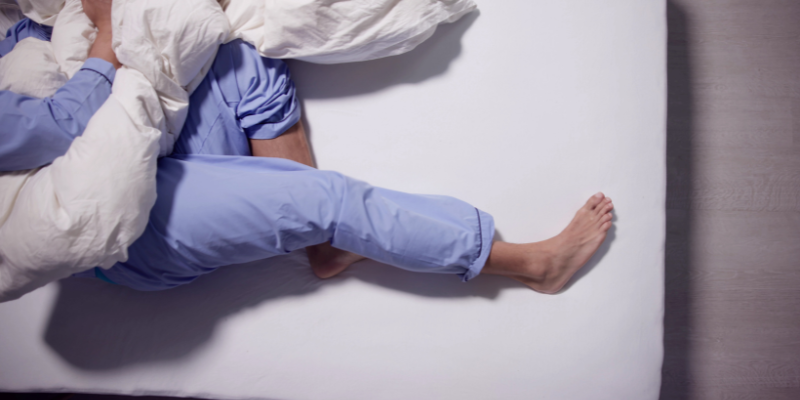Restless Leg Syndrome (RLS)
Restless Leg Syndrome (RLS) Treatment

Treatment Range Hospital in Hyderabad offers expert care for Restless Leg Syndrome (RLS), helping patients overcome uncomfortable sensations and the irresistible urge to move their legs, especially during sleep. Our neurologists provide advanced therapies including iron supplementation for deficiencies and dopamine agonists to reduce nighttime limb discomfort, making us one of the leading hospitals for RLS treatment in Hyderabad.
Our comprehensive approach starts with identifying underlying causes such as iron deficiency or neurological factors contributing to RLS. Treatment plans are customized with medications, lifestyle modifications, and sleep hygiene practices to ease symptoms and improve sleep quality. For patients with severe or chronic RLS, advanced options and supportive therapies are also available to enhance comfort and mobility.
If you are searching for Restless Leg Syndrome treatment in Hyderabad, Treatment Range Hospital offers experienced specialists, modern diagnostic facilities, and holistic care to help you achieve restful sleep and a better quality of life.
- Your 6 - Phase health Process
Your Complete Restless Leg Syndrome (RLS) Journey
🩺Phase 1: Symptoms Identification
- Common signs include:Uncomfortable sensations in legs (tingling, creeping, pulling)
- Urge to move legs, especially at night or during rest
- Relief with movement (walking or stretching)
- Disrupted sleep and daytime fatigue
- Symptoms worse in the evening or at bedtime
🔬Phase 2: OPD Consultation & Assessment
- Detailed history of symptoms (timing, severity, triggers)
- Screening for secondary causes (iron deficiency, pregnancy, kidney disease)
- Neurological exam to rule out other movement disorders
🧬 Phase 3: Causes & Risk Factors
- Primary RLS: idiopathic, often familial
- Secondary RLS: associated with iron deficiency anemia, pregnancy, chronic kidney disease, or certain medications
- Risk factors: women, age >40, family history
🔍 Phase 4: Diagnosis & Investigations
- Blood tests for ferritin (iron stores), creatinine (kidney function), and thyroid profile
- Polysomnography (sleep study) if symptoms are severe or associated with other sleep disorders
💊 Phase 5: Treatment Plan
- Iron Correction:Oral or IV iron supplementation if ferritin <50 ng/mL
- Dopamine Agonists:Pramipexole or Ropinirole for moderate-to-severe symptoms
- Lifestyle Modifications:Regular exercise and stretching
- Avoid caffeine, nicotine, and alcohol in the evening
- Relaxation techniques (yoga, massage) before bedtime
💪Phase 6: Recovery & Long-term Management
- Regular monitoring of iron levels and kidney function
- Encourage daily physical activity
- Maintain good sleep hygiene (consistent bedtime, no screens)
- Adjust medications if augmentation (worsening of symptoms) occurs
Insurance Support










- Why Choose Us
Why patients trust us with their care
- Patient Testimonials
Patient stories of care and recovery










- Frequently Asked Questions
Helping you understand Our healthcare
RLS can be primary (genetic) or secondary to conditions like iron deficiency, kidney disease, or pregnancy.
Yes. Dopamine agonists (Pramipexole, Ropinirole) are first-line treatments. Iron supplements help if low ferritin is found.
Low brain iron levels affect dopamine metabolism, which contributes to RLS symptoms. Correcting iron deficiency can improve or resolve symptoms.
Yes. Regular exercise, stretching, and avoiding caffeine, nicotine, and alcohol in the evening can reduce symptoms.
Primary RLS may slowly progress, but with proper treatment, symptoms can be well controlled, and quality of sleep can improve.